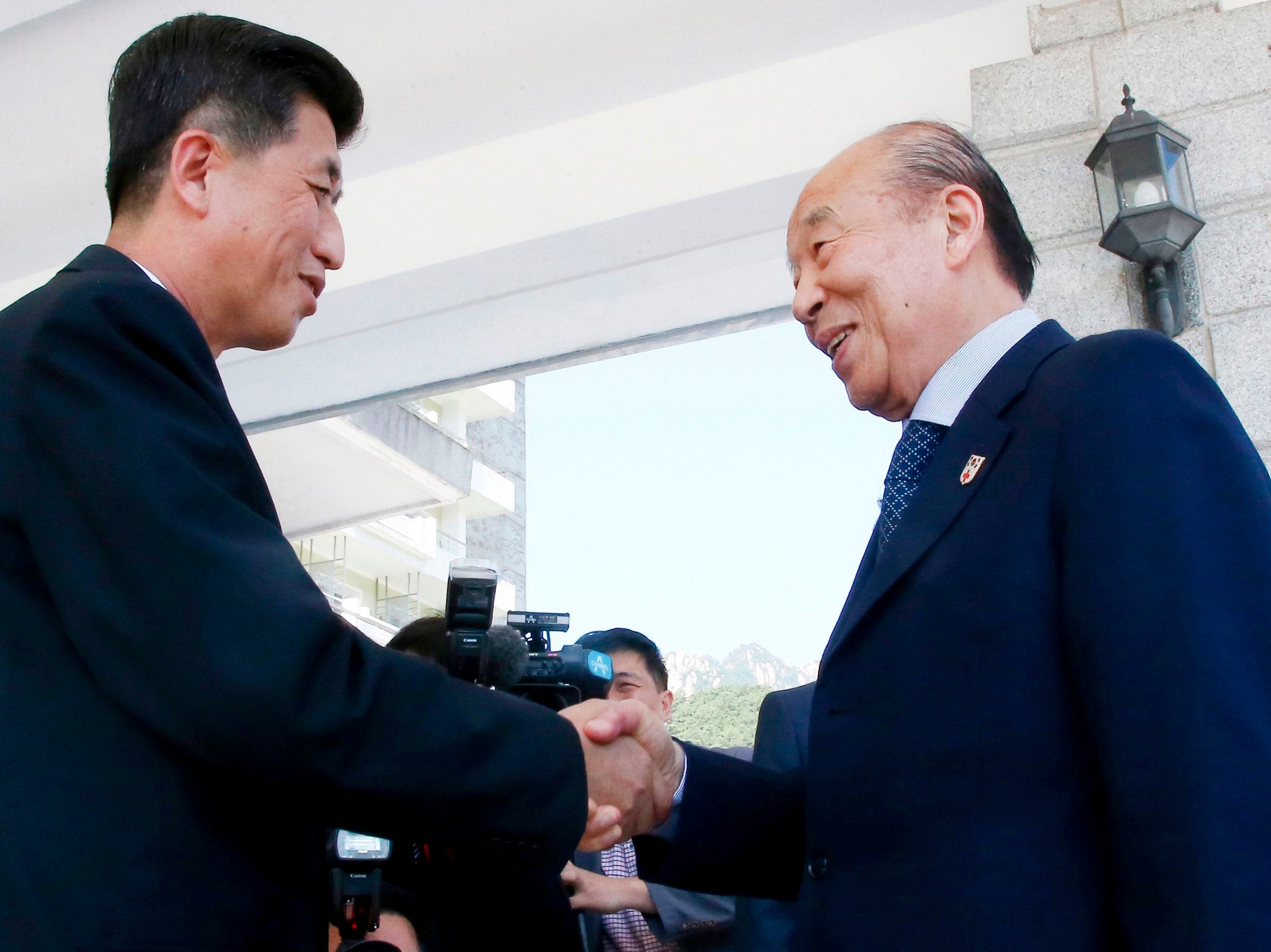North and South Korea to reunite families separated by war 65 years ago, Seoul announces
Millions suddenly found themselves divided by world's most heavily fortified border after Korean War ended
Your support helps us to tell the story
From reproductive rights to climate change to Big Tech, The Independent is on the ground when the story is developing. Whether it's investigating the financials of Elon Musk's pro-Trump PAC or producing our latest documentary, 'The A Word', which shines a light on the American women fighting for reproductive rights, we know how important it is to parse out the facts from the messaging.
At such a critical moment in US history, we need reporters on the ground. Your donation allows us to keep sending journalists to speak to both sides of the story.
The Independent is trusted by Americans across the entire political spectrum. And unlike many other quality news outlets, we choose not to lock Americans out of our reporting and analysis with paywalls. We believe quality journalism should be available to everyone, paid for by those who can afford it.
Your support makes all the difference.North and South Korea have agreed to reunite families divided by the 1950-53 Korean War.
The temporary reunions will take place at North Korea’s Diamond Mountain resort from 20-26 August, Seoul’s unification ninistry said.
The countries will each send 100 participants to the reunions. Those with mobility problems will be allowed to bring a relative to help them.
Such temporary reunions are highly emotional, as most wishing to take part are elderly people who are eager to see their loved ones before they die.
After the Korean War ended with a truce, rather than a peace treaty, the two Koreas banned millions of people who suddenly found themselves divided from visiting each other across the world’s most heavily fortified border.
Decades later, many have no word on whether their loved ones are still alive, as their governments prohibit the exchange of letters, phone calls and emails.
Nearly 20,000 Koreans have participated in 20 rounds of face-to-face temporary reunions since 2000.
Aside from setting up a new round of reunions, South Korean officials had hoped to discuss plans for a survey to confirm surviving members of war-separated families in North Korea and the possibility of home town visits and exchanges of letters.
The limited numbers of reunions are vastly insufficient to meet the demands of ageing relatives, who are mostly in their 80s and 90s, South Korean officials say.
According to Seoul’s unification ministry, more than 75,000 of the 132,000 South Koreans who have applied to attend a reunion have died. None of the past participants has had a second reunion.
The reunions would be the first in about three years.
They are among steps promised by the leader of North Korea, Kim Jong-un, and South Korea’s president, Moon Jae-in, to improve ties which had deteriorated over the North’s nuclear and missile programmes.
The rivals recently agreed to restore cross-border military hotline communication channels and field joint teams in some events at the upcoming Asian Games in Indonesia.
“If we sternly separate ourselves from the unfortunate past and acquire a strong mindset for the new times, humanitarian cooperation between the North and South will flourish,” the North Korea delegate, Pak Yong-il, said at the start of the meeting.
Park Kyung-seo, South Korea’s Red Cross chief, expressed hope for talks which could “resolve the grief of our nation”.

On Thursday, Donald Trump boasted at a cabinet meeting his administration has had “tremendous success” with North Korea, adding denuclearisation had already begun.
However, the US president’s comments contradicted those made by his defence secretary, James Mattis, the day before.
When asked if he North had taken any action to dismantle its nuclear weapons programme, Mr Mattis said: “I’m not aware of any. Obviously, we’re at the very front end of the process. Detailed negotiations have not begun.”
Subscribe to Independent Premium to bookmark this article
Want to bookmark your favourite articles and stories to read or reference later? Start your Independent Premium subscription today.

Join our commenting forum
Join thought-provoking conversations, follow other Independent readers and see their replies
Comments